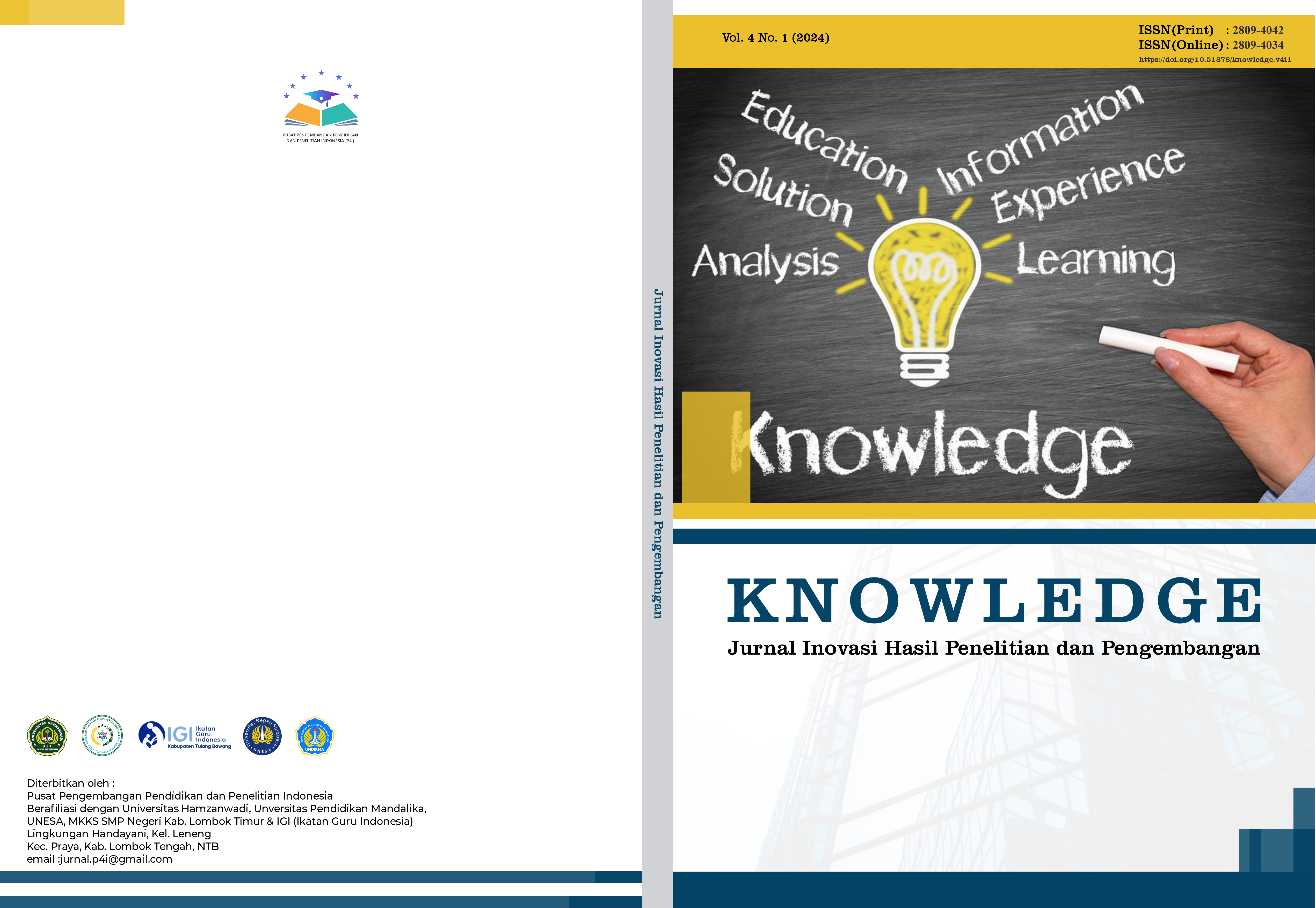TERAPI PERILAKU KOGNITIF PADA EPISODE DEPRESIF SEDANG DENGAN GEJALA SOMATIK DAN GANGGUAN CEMAS MENYELURUH: LAPORAN KASUS
DOI:
https://doi.org/10.51878/knowledge.v4i1.3261Keywords:
Episode depresif sedang dengan gejala somatik, Gangguan cemas menyeluruh, Terapi perilaku kognitifAbstract
A moderate depressive episode with somatic symptoms accompanied by generalized anxiety disorder disrupts the patient's daily functioning and affects their quality of life. Individuals with feelings of sadness and anxiety often hold various irrational beliefs that require therapeutic intervention. One potential treatment is cognitive behavioral therapy (CBT). This study will present the effectiveness of CBT in addressing cases of depression and anxiety. CBT sessions, which typically consist of 8-12 sessions, not only alleviate mood disturbances but also improve cognitive processes. This case report will also highlight the importance of CBT in managing the patient’s condition, in conjunction with pharmacotherapy and supportive psychotherapy. It is hoped that this study will pave the way for the future development of CBT.
ABSTRAK
Episode depresif sedang dengan gejala somatik disertai dengan gangguan cemas menyeluruh menimbulkan gangguan dalam fungsi sehari-hari pasien dan mempengaruhi kesejahteraan hidup. Seseorang dengan suasana perasaan sedih dan cemas memiliki berbagai kepercayaan irasional yang perlu untuk diberi terapi. Salah satu terapi yang dapat diberikan adalah terapi perilaku kognitif (CBT). Studi ini akan memaparkan tentang efektivitas CBT dalam menangani kasus depresi dan cemas. Adapun sesi CBT terdiri dari 8-12 sesi yang tidak hanya dapat meredahkan gangguan suasana perasaan, tetapi juga memperbaiki cara berpikir. Laporan kasus ini akan menunjukkan pula pentingnya CBT untuk menangani kondisi pasien diimbangi dengan psikofarmaka dan psikoterapi suportif. Diharapkan penelitian ini dapat membuka jalan untuk pengembangan CBT di masa mendatang.
Downloads
References
Amir, N. (2013). Buku ajar psikiatri (Edisi ke-2). Jakarta: FKUI.
American Psychiatric Association. (2010). Practice guideline for the treatment of patients with panic disorder (2nd ed.). New York: American Psychiatric Association.
Bandelow, B., Michaelis, S., & Wedekind, D. (2017). Treatment of anxiety disorders. Dialogues in Clinical Neuroscience, 19(2), 93-107.
Beesdo-Baum, K., & Knappe, S. (2015). Developmental epidemiology of anxiety disorders. Dialogues in Clinical Neuroscience, 17(2), 113-119.
Cuijpers, P., Karyotaki, E., Weitz, E., Andersson, G., Hollon, S. D., Van Straten, A., & Ebert, D. D. (2016). The effects of psychotherapies for major depression in adults on remission, recovery and improvement: A meta-analysis. Journal of Affective Disorders, 202, 511-515.
Kaplan, H. I., Sadock, B. J., & Grebb, J. A. (2010). Sinopsis psikiatri: Ilmu pengetahuan perilaku psikiatri klinis (Edisi ke-7, Jilid 1). Jakarta: Binarupa Aksara.
Kroenke, K., Wu, J., Yu, Z., Bair, M. J., Kean, J., Stump, T., & Monahan, P. O. (2016). Patient Health Questionnaire Anxiety and Depression Scale: Initial validation in three clinical trials. Psychosomatic Medicine, 78(6), 716-727.
Malamood, M., Roberts, A., Kataria, R., Parkman, H. P., & Schey, R. (2017). Mirtazapine for symptom control in refractory gastroparesis. Drug Design, Development and Therapy, 11, 1035-1041. https://doi.org/10.2147/DDDT.S125743
Redayani, P. (2010). Gangguan cemas menyeluruh. Dalam Buku ajar psikiatri. Jakarta: FKUI.
Spett, M. (2008). Cognitive-behaviour therapy for panic attacks. Retrieved April 2, 2023, from http://www.njact.org/panic.html
Westra, H. A., Constantino, M. J., & Antony, M. M. (2016). Integrating motivational interviewing with cognitive-behavioral therapy for severe generalized anxiety disorder: An allegiance-controlled trial. Journal of Consulting and Clinical Psychology, 84(9), 768-782.

















